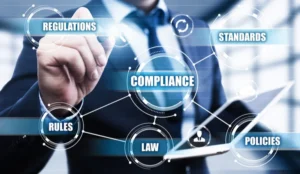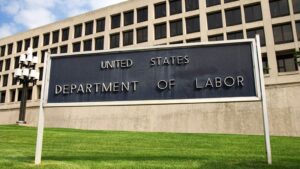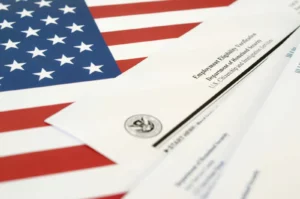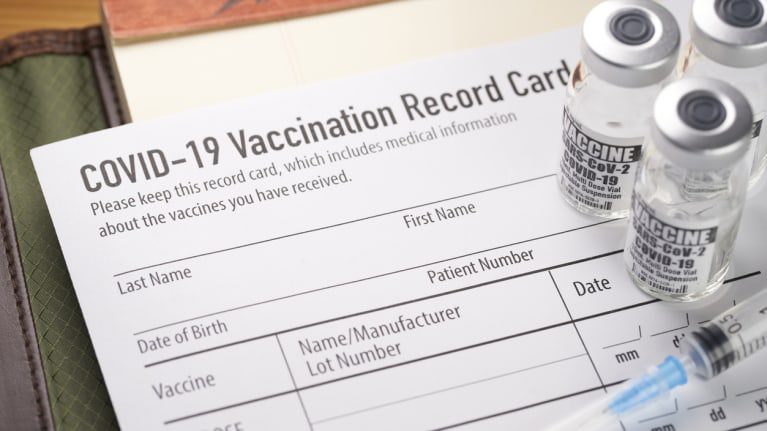Share
**UPDATE 1/13/2022**
After hearing arguments last Friday, the U.S. Supreme Court issued a stay on OSHA’s COVID-19 vaccination emergency temporary standard in their decision published today.
Justices Neil Gorsuch, Samuel Alito, and Clarence Thomas issued an opinion occurring in the decision while Justices Stephen Breyer, Sonia Sotomayor, and Elena Kagan dissented.
“Although Congress has indisputably given OSHA the power to regulate occupational dangers, it has not given that agency the power to regulate public health more broadly,” the court said in their decision
The court, however, issued a separate opinion dissolving injunctions placed on a vaccination mandate for healthcare workers issued by the Centers for Medicare and Medicaid Services.
In summation, the Supreme Court blocked the Biden administration from enforcing its sweeping vaccine-or-test requirements for large private companies with over 100 employees. In a separate decision, the court did allow the vaccine mandate to stand for medical facilities that take Medicare or Medicaid payments.
___________________________________________________________________________
A major focus during the election and in President Biden’s first year has been the COVID-19 vaccine. Several months after the initial rollout, Biden has announced additional measures to get more Americans vaccinated with a wide-sweeping employer vaccine mandate.
First, Biden ordered federal workers and contractors to be vaccinated, with no testing option. Federal workers have until November 22 to get the shots, while federal contractors have until January 4.
Now, Biden has targeted large businesses (over 100 employees) in the next phase of his vaccination plan. Here’s what employers and employees new to know about the new employer vaccine mandate:
Who does the employer vaccine mandate apply to?
Issued by the Occupational Safety and Health Administration (OSHA), the first new rule applies to companies with over 100 employees. This encompasses an estimated 84 million workers who have not yet received their first COVID-19 shot.
- Employers must include all employees across all of their U.S. locations in their total employee number counts.
- Part-time employees do count towards the company total, but independent contractors do not.
Who does the employer vaccine mandate not apply to?
- Independent contractors.
- Employees who do not report to a workplace where other individuals (such as co-workers or customers) are present.
- Those who work exclusively from home.
- Employees who work exclusively outdoors.
For unvaccinated employees who do not regularly come into a workplace, the mandate requires testing within seven days prior to coming into the workplace
When is the deadline?
To guarantee compliance, companies with 100 or more employees must ensure that their workers do one of the following by January 4, 2022:
- Become fully vaccinated against COVID-19
- Start testing for the coronavirus at least once a week.
Are employers required to make any accommodations?
Under the OSHA rule, employers must grant workers:
- Paid time off up to 4 hours to receive vaccination.
- Sick leave for workers to recover from any side effects.
How does this affect mask mandates?
Effective December 5, 2021, unvaccinated workers must wear face coverings while on the job.
Are employers responsible for paying for testing?
The rule does not require employers to pay for or provide testing to workers who decline the vaccine.
Despite this, iit may benefit certain employers to cover those costs anyway, including companies with a relatively small number of employees who require testing. Additionally, state and local jurisdictions may have their own regulations that require employers to pay for testing.
Who is responsible for enforcing the employer vaccine mandate rules?
The federal government will rely largely on companies themselves to enforce all aspects of these rules. OSHA will most likely monitor employee complaints and coronavirus-related inspections to monitor enforcement.
Employers found in violation of the rules will face fines of up to $13,653 per violation and up to 10x that ($136,532) that for repeated violations.
OSHA did release two sample employee vaccination policies for employers to use:
- The first establishes a mandatory vaccination policy.
- The second that allows employees to opt for weekly testing + masking in lieu of vaccination.
Are there separate rules for the medical field?
Yes, a second rule was issued by the Centers for Medicare & Medicaid Services. It requires health care workers to be vaccinated by January 4. Unlike the previous rule, no option for weekly testing is allowed for those opposed to vaccination.
This rule covers all employees — clinical and nonclinical — at about 76,000 health care facilities that receive federal funding from Medicare or Medicaid. In total, approximately 17 million additional American workers.
Are there any legal challenges to the employer vaccine mandate?
Yes. There was a backlash almost immediately from 24 attorneys general (including Louisiana and Texas) from numerous Republican-led states threatening legal action.
As of this week, multiple legal challenges have been filed. Ultimately, the 5th U.S. Circuit Court of Appeals issued a temporary stay on the OSHA rule that would require employers to set a mandate for employee vaccination.
The Biden administration clarified its legal authority in issuing the rule, citing the responsibility to provide workers with safe working conditions and to act quickly when workers are facing danger.
In his original announcement, Biden proclaimed that vaccine requirements are good for the economy and cited the success of already in effect vaccine mandates.
What should employers do now to prepare for the employer vaccine mandate ?
Despite this pause and continued legal challenge, employment law experts advise employers to begin working toward compliance anyway. If upheld, there is unlikely to be any changes made to the previously announced deadlines.
- Employers are advised to create and maintain a roster of each employee’s vaccination status. Employers must preserve acceptable proof of vaccination for each employee who is fully or partially vaccinated.
- There is some concern that employer vaccination mandates could lead to increased employee turnover. To prepare for this scenario, employers should examine their recruiting, onboarding, and offboarding policies and procedures.
Disclaimer: The opinions expressed are those of the author(s) and do not necessarily reflect the views of Netchex or its clients. This post is for general information purposes only and is not intended to be and should not be taken as legal advice.
Industry news & tips sent straight to your inbox!
Enter your email below to subscribe to industry news, product updates, and tips.
Download our checklist to effectively plan your company’s response to the employer vaccine mandate
Related articles

HR Rules + Legislation Updates: Overtime, Non-Compete, Joint Employer, and More

HR Legislation: 2024 Updates to Independent Contractors and Joint Employer Rules

DOL Proposes New Overtime Rules: What to Know and How to Prepare

